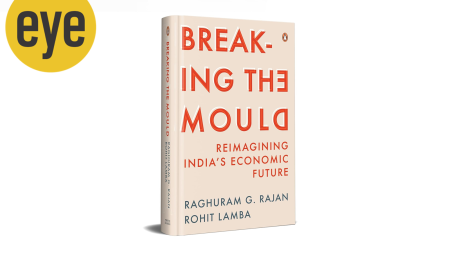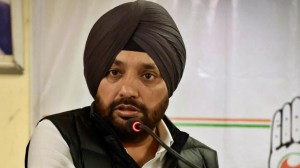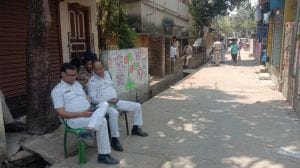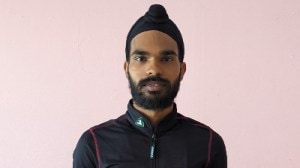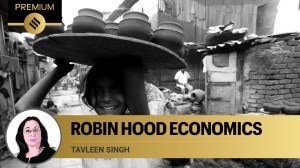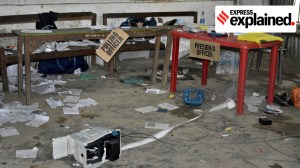- India
- International
South Koreans offer world lessons on how to tame coronavirus
Commonsense solutions – such as wearing a mask and practicing social distancing – have kept infection rates and fatalities quite low in South Korea.
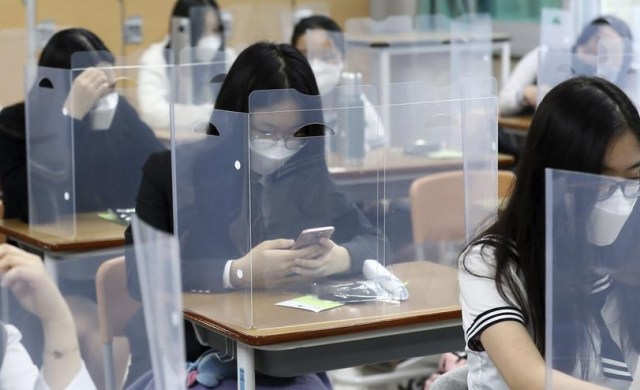 So far, South Korea, a nation of 51.64 million people, has registered over 26,000 confirmed COVID-19 cases and 461 deaths. (K Jun-Beom/AP)
So far, South Korea, a nation of 51.64 million people, has registered over 26,000 confirmed COVID-19 cases and 461 deaths. (K Jun-Beom/AP)In the very earliest stages of the global coronavirus pandemic, South Korea appeared to be among the nations that was hardest hit and there were fears that the illness would run unchecked through every sector of society and leave thousands dead, medical institutions at breaking point and the nation on its knees.
That scenario has indeed come to pass in other nations, most of which had the benefit of a little more advance warning than Seoul, but since the traumatic early days of the crisis, South Korea has managed to gain a degree of control over the virus. And for that, the public must take the credit.
So far, South Korea, a nation of 51.64 million people, has registered over 26,000 confirmed COVID-19 cases and 461 deaths. In comparison, there have been 463,419 cases in Germany and slightly over 10,000 deaths, while the US has reported more than 8.8 million infections and 226,681 deaths.
Commonsense approach
South Koreans say a commonsense approach to the crisis on the part of the average citizen and faith in the scientists and medical experts charged with protecting public health have proved critical.
“South Koreans took this pandemic very seriously from the start and a majority of people were wearing masks even before it was recommended for the general public,” said Park So-keel, director of research for a Seoul-based human rights organization.

“We have not seen the cynicism and pushback of many Western societies to government restrictions and recommendations,” he told DW. “People have followed suit because the danger is taken seriously and there is basic trust in the government to protect public health, and that trust has been repaid by an effective test and trace strategy, clear messaging and minimal disruptions to normal life.”
Paek Soo-jin, who is on furlough from her job with a travel company, said Korean people were very quick to adopt the advice of medical professionals.
“The recommendations were to wear a mask whenever you go outside and to keep your distance from other people, and no-one objected when it was mandatory to have your temperature taken to go into a school or a hospital or a shop,” she told DW. “People realized that it was a sensible precaution, I think.”
“But maybe there were some traditional attitudes on show,” she added. “People wore masks and took other precautions because they do not want to get ill, but also because they do not want other people around them on a bus or in a shop to get ill. That’s just polite and it’s our custom.”
A graduate student at Seoul National University, who would only give his family name, Kim, said there is no legal mandate for people to wear a mask in public, but people just knew that it was a simple defensive measure that did not impose much in the way of a burden.
Sense of desperation
“In the early weeks of the crisis, I think there was a sense of desperation among quite a lot of people,” he told DW. “No-one really knew what the virus was, how long it was going to last, the impact on everyday lives and then the nation and our economy. People realized that the longer it went on for, the more people would be ill and the greater the economic impact, all of which would make it harder and harder to recover. So wearing a mask was not a big inconvenience.”
Nevertheless, it has been hard for many people, Kim said, and his family has not been able to meet his elderly grandparents in central Korea for many months out of concern that they might be taken ill.
“It’s difficult, but we know it is the sensible thing to do,” he said. “The consequences of not being safe could be extremely serious.”
Song Young-chae, a professor at Seoul’s Sangmyung University, said there was widespread criticism of the South Korean government in the early weeks of the outbreak as many felt that the authorities had not moved quickly enough to stop people from China arriving. After that initial error of judgement, however, the “system” swung into action and has worked fairly well, he told DW.
Track and trace system
“Over the years, Korea has developed an e-government system that is efficient at tracing people and keeping track of people who are ill,” he said. “We also have a very advanced medical system, but it also works because people trust the system and respect laws and regulations.”
For Song, the biggest change to his daily routine has been to shift university lectures online, in parallel with his human rights work and his regular visits to church.
David Tizzard, a professor of education at Seoul Women’s University, says the nation learned its lessons in the outbreak of the Middle East Respiratory Syndrome in 2015, with the illness infecting 186 people and leading to 36 deaths.
“The government of the day was widely criticized for failing to deal with the outbreak, so this government has responded as if it has a point to prove to its predecessors,” he told DW. “But it has also helped because coronavirus has not been politicized like it has been in other countries.”
“Another reason why the situation has not been nearly so bad here is because people wear masks,” he added. “Koreans have been wearing masks for many years because of the fine dust that blows over from China every winter, so wearing a mask to protect themselves against coronavirus was easy for them as they were accustomed to it.”
Apr 28: Latest News
- 01
- 02
- 03
- 04
- 05









